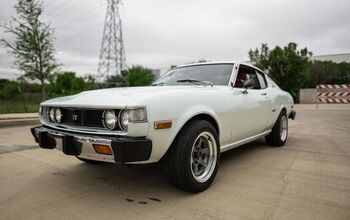Whoops: Mercedes-Benz Diesel Probe in U.S. Uncovers Possible Defeat Device

U.S. investigators have found what could be illegal software modifications on Mercedes-Benz diesels intended to help the vehicles pass emissions testing. An engine management function called Slipguard recognized whether the car was undergoing testing procedures while another, called Bit 15, halted emissions cleaning after roughly 16 miles of driving. Together, the two pieces of software may amount to what is known within the industry as a “defeat device.”
When paired the software apparently enabled the cars to produce NOx levels up to 10 times higher than what is legally permitted. Interestingly, Mercedes-Benz issued a voluntary recall upon roughly 3 million European cars last month to reduce nitrogen oxide emissions by tweaking their electronic control units.
German media outlet Bild am Sonntag, has also cited confidential emails between Mercedes’ engineers that questioned whether the software functions were legal to use. Daimler has been under pressure in the diesel exhaust scandal for some time. Stuttgart prosecutors and the U.S. Department of Justice have both been investigating the issue since the spring of 2017.
A company spokesman declined to elaborate on the documents, saying the automaker was cooperating with the U.S. authorities and had agreed upon strict confidentiality with the Department of Justice. “The authorities know the documents and no complaint has been filed,” a spokesman told Automotive News. “The documents available to Bild have obviously selectively been released in order to harm Daimler and its 290,000 employees … We have been fully cooperating for more than two years and provide comprehensive transparency.”
Daimler CEO Dieter Zetsche has repeatedly emphasized, since the outbreak of Volkswagen’s diesel sandal over two years ago, that vehicles from Mercedes-Benz had not and would not be manipulated.
[Image: Mercedes-Benz]

A staunch consumer advocate tracking industry trends and regulation. Before joining TTAC, Matt spent a decade working for marketing and research firms based in NYC. Clients included several of the world’s largest automakers, global tire brands, and aftermarket part suppliers. Dissatisfied with the corporate world and resentful of having to wear suits everyday, he pivoted to writing about cars. Since then, that man has become an ardent supporter of the right-to-repair movement, been interviewed on the auto industry by national radio broadcasts, driven more rental cars than anyone ever should, participated in amateur rallying events, and received the requisite minimum training as sanctioned by the SCCA. Handy with a wrench, Matt grew up surrounded by Detroit auto workers and managed to get a pizza delivery job before he was legally eligible. He later found himself driving box trucks through Manhattan, guaranteeing future sympathy for actual truckers. He continues to conduct research pertaining to the automotive sector as an independent contractor and has since moved back to his native Michigan, closer to where the cars are born. A contrarian, Matt claims to prefer understeer — stating that front and all-wheel drive vehicles cater best to his driving style.
More by Matt Posky
Latest Car Reviews
Read moreLatest Product Reviews
Read moreRecent Comments
- SCE to AUX Norway is in Europe, and Tesla is an American automaker - no problems there.I wouldn't use Ford as the bellwether.https://www.reuters.com/business/autos-transportation/tesla-extends-lead-norway-evs-take-record-82-market-share-2024-01-02/https://elbil.no/english/norwegian-ev-policy/
- Steve Biro If the U.S. government wants to talk about banning all connected cars - or at least the collection and sharing of information from said vehicles - I’m all ears. Otherwise, don’t waste my time.
- Ajla Both parties are in favor of banning Chinese vehicles so I don't see how it won't happen in the next year.
- Add Lightness I don't waste a lot of time watching nothing much happening by watching the YouTube 6 minute highlights.
- MrIcky from my rental fleet experience, id rather drive one of these than a camry.


































Comments
Join the conversation
I always suspected that no other manufacturer called out VW for their cheat devices before the private company did because they were [mostly] all doing it. Everyone was baffled by how VW was able to get the numbers that they did. You can't tell me someone didn't reverse engineer a car and figure it out. Also suspiciously absent were other car makers trying to lure customers to them assuaging that their clean diesel was actually clean.
Rude comments above aside, I've owned several M-B diesels, several of which went well past 300K miles, one that went to just under 500K before being totaled in a street flood. Currently in one of the apparently cheating E250 Bluetec 4-matic. I buy them because they get great mileage, are very very comfortable, I travel long distances often, and the Diesel engines last much longer. I am disappointed about this news, but... I will drive them until I cannot.